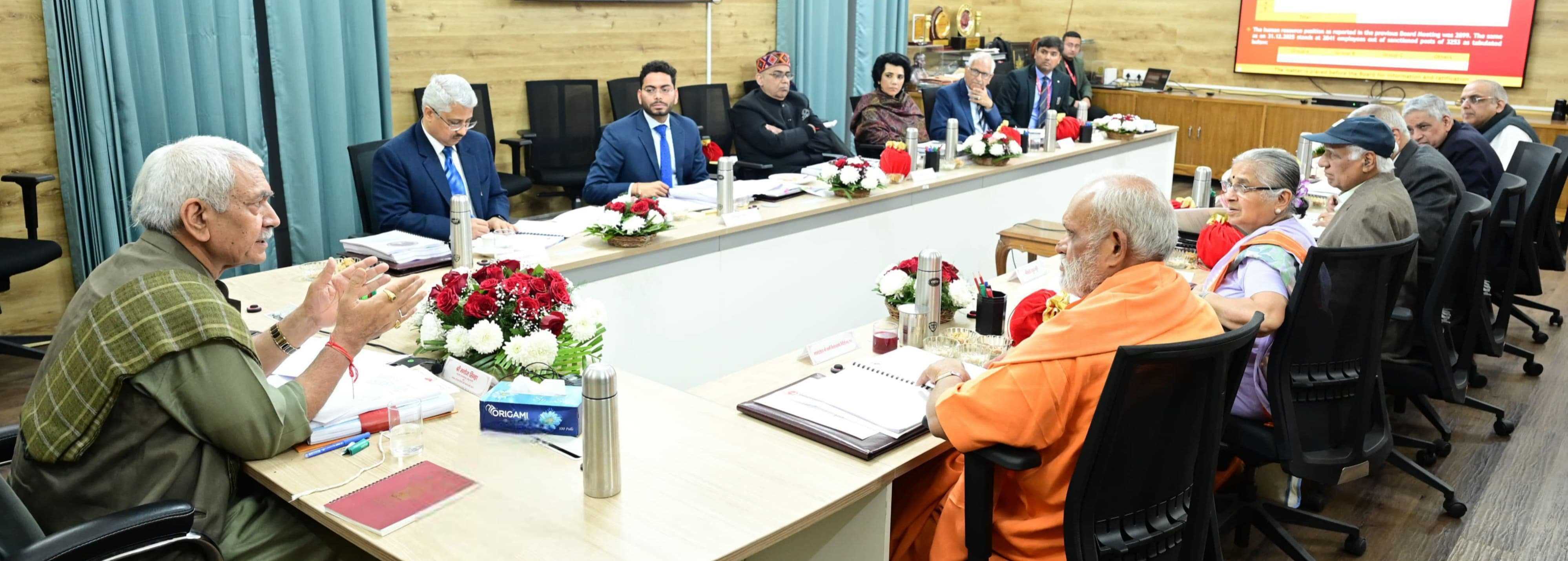
The Jammu and Kashmir government’s move to begin the process of taking over schools affiliated with the proscribed Jamaat-e-Islami (JeI) affiliate, Falah-e-Aam Trust (FAT), is both timely and crucial. This decision, though administrative on the surface, carries an important political, social, and security implications to address the scourge of terrorism. FAT, with its widespread network of educational institutions, has for years operated in the ideological shadows of separatism and radicalism, often sowing seeds of extremist thought under the guise of education. Banned in 2019 alongside its parent organization Jamaat-e-Islami under the Unlawful Activities (Prevention) Act, FAT had remained a critical tool in the ideological apparatus that fostered a distorted narrative among the youth. These schools, spread across various districts of Jammu and Kashmir, were not merely centers of education but platforms for subtle indoctrination. By gradually instilling a separatist mindset and glorifying militancy, they contributed to a culture where extremism found fertile ground, particularly among impressionable students. The government’s decision to integrate these institutions into the formal education system marks a significant step in dismantling this pipeline of radicalization. It is a recognition of the fact that terrorism in Jammu and Kashmir cannot be eliminated solely through military or police action. The roots of militancy are deeply ideological and often start with the narratives children are exposed to in their formative years. By ensuring that these schools are brought under a curriculum that promotes constitutional values, pluralism, and critical thinking, the government has started to address the problem at its ideological core. Besides, this action sends a clear message that the state will not tolerate soft radicalization, especially when it masquerades as education. It also brings much-needed accountability to our educational landscape. Thousands of children enrolled in FAT-run schools will now have access to a standardized, secular curriculum—one that equips them with knowledge and skills rather than political dogma. However, this transition must be managed with sensitivity. Many of these children come from economically vulnerable backgrounds and sudden disruption can lead to confusion and dropout risks. The government must ensure a smooth transition, retain qualified teachers after vetting, and involve civil society to build trust within communities. In the long run, tackling the ideological roots of terrorism is the only sustainable way to bring peace and stability to Jammu and Kashmir. The FAT school takeover is not just an administrative reform—it is a strategic blow to the ecosystem of extremism and a foundational step toward lasting peace.

The Jammu and Kashmir government’s move to begin the process of taking over schools affiliated with the proscribed Jamaat-e-Islami (JeI) affiliate, Falah-e-Aam Trust (FAT), is both timely and crucial. This decision, though administrative on the surface, carries an important political, social, and security implications to address the scourge of terrorism. FAT, with its widespread network of educational institutions, has for years operated in the ideological shadows of separatism and radicalism, often sowing seeds of extremist thought under the guise of education. Banned in 2019 alongside its parent organization Jamaat-e-Islami under the Unlawful Activities (Prevention) Act, FAT had remained a critical tool in the ideological apparatus that fostered a distorted narrative among the youth. These schools, spread across various districts of Jammu and Kashmir, were not merely centers of education but platforms for subtle indoctrination. By gradually instilling a separatist mindset and glorifying militancy, they contributed to a culture where extremism found fertile ground, particularly among impressionable students. The government’s decision to integrate these institutions into the formal education system marks a significant step in dismantling this pipeline of radicalization. It is a recognition of the fact that terrorism in Jammu and Kashmir cannot be eliminated solely through military or police action. The roots of militancy are deeply ideological and often start with the narratives children are exposed to in their formative years. By ensuring that these schools are brought under a curriculum that promotes constitutional values, pluralism, and critical thinking, the government has started to address the problem at its ideological core. Besides, this action sends a clear message that the state will not tolerate soft radicalization, especially when it masquerades as education. It also brings much-needed accountability to our educational landscape. Thousands of children enrolled in FAT-run schools will now have access to a standardized, secular curriculum—one that equips them with knowledge and skills rather than political dogma. However, this transition must be managed with sensitivity. Many of these children come from economically vulnerable backgrounds and sudden disruption can lead to confusion and dropout risks. The government must ensure a smooth transition, retain qualified teachers after vetting, and involve civil society to build trust within communities. In the long run, tackling the ideological roots of terrorism is the only sustainable way to bring peace and stability to Jammu and Kashmir. The FAT school takeover is not just an administrative reform—it is a strategic blow to the ecosystem of extremism and a foundational step toward lasting peace.
© Copyright 2023 brighterkashmir.com All Rights Reserved. Quantum Technologies